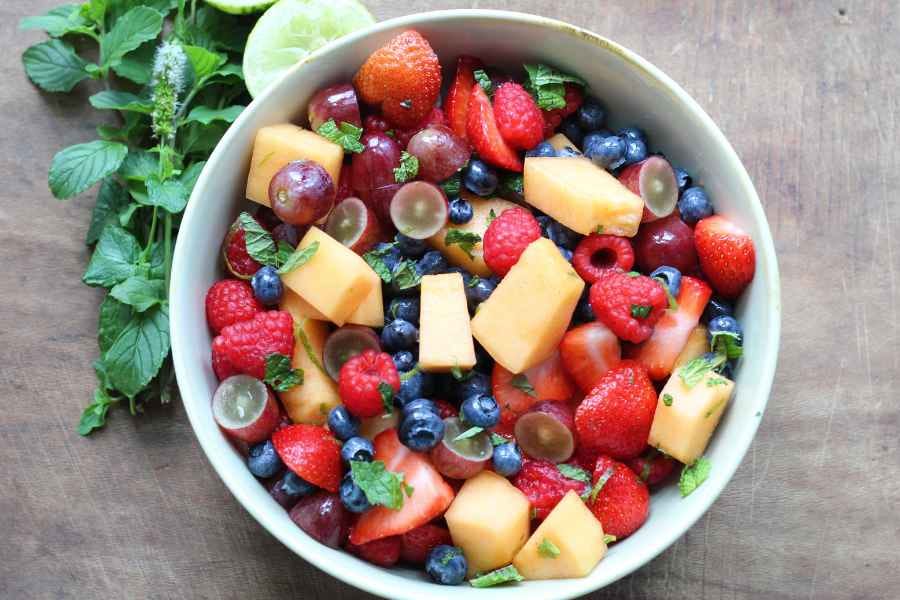5 Cancer-Fighting Foods You Should Be Eating
The Mediterranean diet is known for its protective effects, especially when it comes to reducing inflammation, which plays a major role in the development of cancer.
October is Breast Cancer Awareness Month, a timely reminder to reflect on the choices we make daily, especially in terms of what we eat. For those in midlife, concerns about diseases like cancer often come to the forefront. While genetics and other factors play a role, diet can significantly influence your long-term health and cancer risk.
The Mediterranean diet is renowned for its protective effects, particularly in reducing inflammation—a key factor in cancer development. Research shows that this way of eating may reduce the risk of overall cancer deaths and several specific types of cancer, including:
Colorectal
Breast
Stomach
Liver
Prostate
Head and neck cancers
Approximately 30% of cancers can be prevented by a healthy diet, according to research.
While 5–10% of tumors are caused by genetic predisposition, the other 90–95% are largely linked to environmental factors or unhealthy lifestyle choices, such as:
Poor diet
Lack of exercise
Alcohol or tobacco consumption
Let's take a closer look at why the Mediterranean diet is so impactful.
The Mediterranean Diet and Cancer Prevention
Following the Mediterranean Diet may lower cancer risk by up to 17% according to a study, with even stronger benefits for women.
A 2017 meta-analysis pooled data from 83 studies involving over 2 million people. It found that high adherence to the Mediterranean diet is associated with a significantly lower risk of several types of cancer, including:
Colorectal cancer
Breast cancer
Stomach cancer
Reduced risks for liver, prostate, and head and neck cancers.
Cancer survivors benefit too: Research shows that those who follow the Mediterranean diet have a lower risk of death from cancer, emphasizing its protective effects.
The diet’s high intake of fruits, vegetables, and whole grains and low consumption of processed meats are all key factors in reducing overall cancer risk.
Today, we’re highlighting five powerful cancer-fighting foods that are a staple of the Mediterranean diet. These nutrient-dense choices can help support your overall health and reduce your cancer risk.
1. Tomatoes: Lycopene Powerhouse

Tomatoes contain lycopene, a powerful antioxidant linked to a reduced risk of several types of cancer, including prostate cancer. Pro tip: Lycopene is better absorbed when tomatoes are cooked, making it easier for your body to benefit from this cancer-fighting compound.
How to Enjoy Them: Add tomatoes to your salads and pastas, or roast them with a drizzle of olive oil. Canned tomatoes work, too- we used them in this Easy Shakshuka with Feta recipe.
2. Berries: Antioxidant-Rich Cancer Fighters
Berries such as strawberries, blueberries, and raspberries are packed with antioxidants that help protect cells from damage, which may lower the risk of cancer. These fruits are particularly rich in flavonoids, known for their ability to neutralize free radicals, reduce inflammation, and protect against DNA damage.
How to Enjoy Them: Add a handful of berries to your morning yogurt, blend them into smoothies, enjoy them as a refreshing snack, or in our Mediterranean Fruit Salad with Mint.
3. Beans: Fiber-Packed Cancer Fighters

Beans are high in fiber, which some studies have found may help protect against colorectal cancer. In a 2006 study, researchers followed 1,905 people with a history of colorectal tumors and found that those who consumed more cooked dried beans had a decreased risk of tumor recurrence.
How to Enjoy Them: Add beans to soups, salads, or wraps, or use them in place of meat in chili for a hearty, fiber-rich meal. Try our Quick and Easy 3 Bean Chili!
4. Cruciferous Vegetables: Cancer Fighters

Broccoli, cauliflower, Brussels sprouts, and cabbage are part of the cruciferous vegetable family, known for their cancer-fighting properties. These veggies are rich in fiber, antioxidants, and vitamins A, C, and K—all nutrients tied to healthy aging. Sulforaphane, a compound found in cruciferous vegetables, has been linked to cancer protection, heart health, and better blood sugar control in those with type 2 diabetes.
How to Enjoy Them: Try roasting Brussels sprouts with olive oil, add broccoli or cauliflower to soups for a hearty, nutrient-packed meal, or add shredded cabbage to recipes like our Vegan Spring Rolls.
5. Nuts: A Crunchy Shield Against Cancer
Research has found that eating nuts may be linked to a lower risk of certain types of cancer. In a 2015 study of 19,386 people, eating a greater amount of nuts was associated with a decreased risk of dying from cancer. Another study showed a decreased risk of colorectal, pancreatic, and endometrial cancers.
How to Enjoy Them: Snack on a handful of mixed nuts, add them to salads or include them in muffins like our Carrot Cake Muffins.
PURPOSEful next steps:
Download and print our cancer-fighting foods checklist.
Pick one or two of these foods to include this week and enjoy the benefits of better health and a longer life! And don’t forget to let us know what you are trying!
I am always here to support your journey!
LIVINGfully,
Pam & the Team




